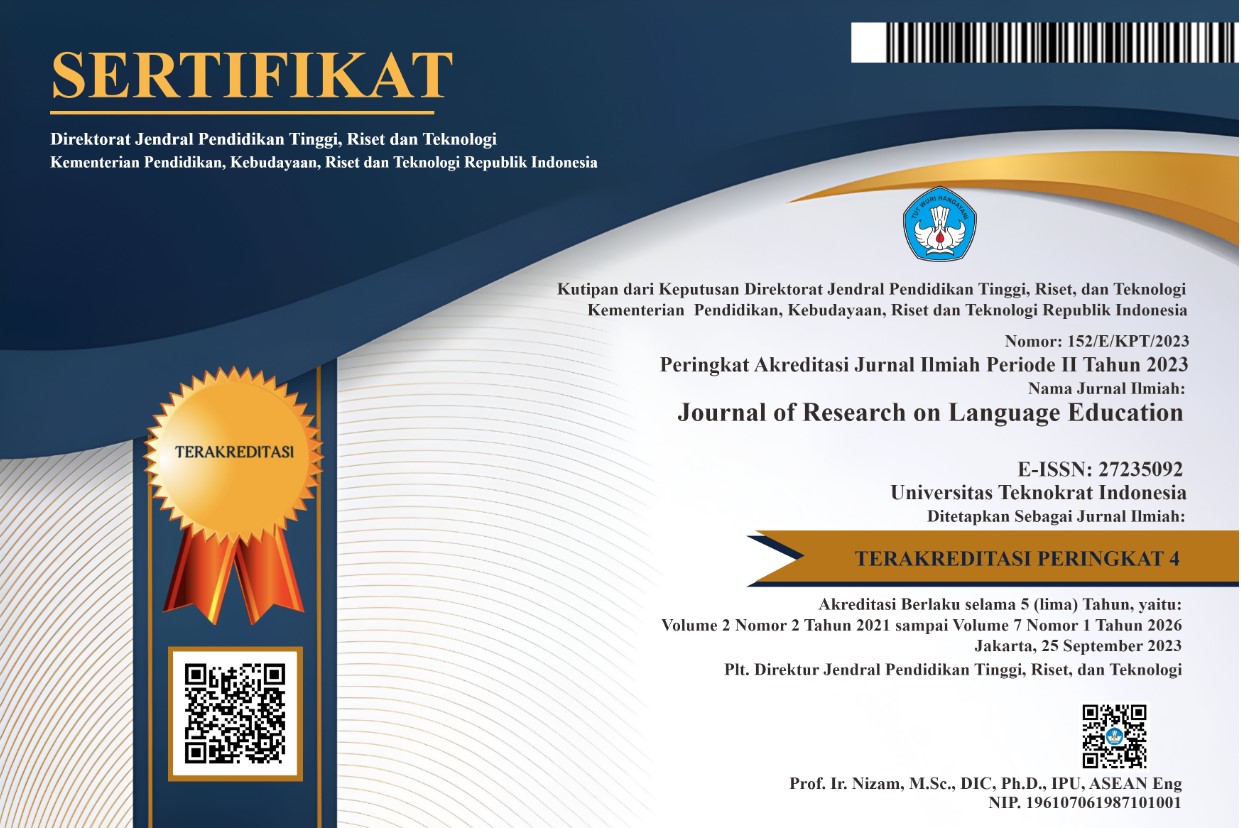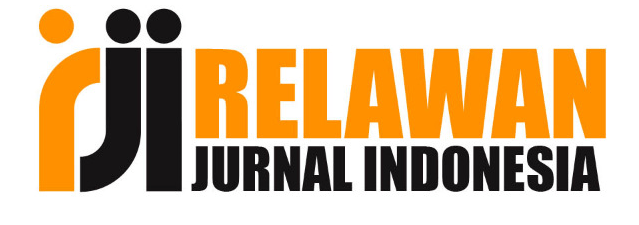STUDENTS’ ENTHUSIASM IN LEARNING IN THE COVID-19 OUTBREAK
Abstract
The purpose of this study is to determine student excitement for studying English during the Covid-19 outbreak, as well as the ways in which teachers encourage student enthusiasm for learning English throughout the outbreak. A qualitative research design was adopted in this study. The subjects of this study are students of class XI in MAN 1 Model Bengkulu class XI A, totaling 30 students. The study's findings revealed that pupils in class XI MAN 1 Model Bengkulu are enthusiastic about learning English. Based on observations and interviews with students from MAN 1 Model Bengkulu class XI. As indicated by the reduction in the English value of class XI MAN 1 Model Bengkulu pupils during the Covid-19 outbreak, the findings show that most students have a low level of excitement when studying. The observation checklist and interview used to observe the activities of students and teachers in the English class. To analyzing the data, the researcher was apply (1) data reduction; (2) data display; and (3) drawing and verifying conclusionTeachers use various strategies so that the enthusiasm of students in learning English during the Covid-19 outbreak continues to increase, namely by using interesting learning videos and giving quizzes to students.
Keywords: Student Enthusiasm, Learning English, Covid-19 Outbreak.
Keywords
Full Text:
PDFReferences
Borong, M. M., & Pd, S. (n.d.). The Students ’ Enthusiasm in Learning English of the Tenth Grade Students at SMK Kristen Tagari. 56–84.
Creswell, J. W. (2012). Educational research: Planning, conducting and evaluating qualitative and quantitative research (4th ed.).
Donald Samuel Slamet Santosa. (2018). Peningkatan Antusiasme dan Kedalaman Kajian Belajar Mahasiswa Melalui Pembelajaran Berbasis Sillabus Individual. Universitas Negeri Jakarta, 53(9), 0.
Dull, E., & Reinhardt, S. P. (2014). An analytic approach for discovery. In CEUR Workshop Proceedings (Vol. 1304, pp. 89–92).
Firmani. (2009). The Correlation between Student’s Interest and Their Learning Achievement of Learning English at the Second Year of SLTPN 1 Pamulang.(Thesis, Universitas Pendidikan Indonesia).
Jack R. Fraenkel, NorMANE. Wallen, and Hellen H. Hyun. How to Design and Evaluate Research in Education Eighth Edition, USA, McGraw Hill, 2012, P. 426.
John W.Cresswel. Research . Qualitative Research, USA, Routledge, 2009, P.185
König, L. (2021). Podcasts in higher education: teacher enthusiasm increases students’ excitement, interest, enjoyment, and learning motivation. Educational Studies, 47(5), 627–630. https://doi.org/10.1080/03055698.2019.1706040
Kpolovie, P. J., Joe, A. I., & Okoto, T. (2014). Academic achievement prediction: Role of interest in learning and attitude towards school. InternationalJournal of Humanities Social Sciences and Education (IJHSSE), 1(11),73-100.
L.R. Gay, et all. Educational Research: Competencies Analysis and Applications – Third Edition. New York, Pearson, 2012, P. 465.
Mahler, D., Großschedl, J., & Harms, U. (2018). Does motivation matter? – The relationship between teachers’ self-efficacy and enthusiasm and students’ performance. PLoS ONE, 13(11), 1–18. https://doi.org/10.1371/journal.pone.0207252
Padma, A., & Sukanesh, R. (2011). Meningkatkan Motivasi Belajar Siswa pada Pembelajaran Online Akibat Pandemi COVID-19. Automatic Classification and Segementation of Brain Tumor in CT Images Using Optimal Dominant Gray LLvel Run Length Texture Features, 2(10), 53–59.
Patrick, B. C., Hisley, J., & Kempler, T. (2000). “what’s everybody so excited about?”: The effects of teacher enthusiasm on student intrinsic motivation and vitality. Journal of Experimental Education, 68(3), 217–236. https://doi.org/10.1080/00220970009600093
Sadikin, A., & Hamidah, A. (2020). Pembelajaran Daring di Tengah Wabah Covid-19. Biodik, 6(2), 109–119. https://doi.org/10.22437/bio.v6i2.9759
Singh, M., Verma, C., Kumar, R., & Juneja, P. (2020). Towards enthusiasm prediction of Portuguese school’s students towards higher education in realtime. Proceedings of International Conference on Computation, Automation and Knowledge Management, ICCAKM 2020, 421–425. https://doi.org/10.1109/ICCAKM46823.2020.9051459
Sugiyno. (2013). Metode Penelitian Kuntitatif Kualitatif dan R&D. Bandung: CV Alfabeta
Troy Frensley, B., Stern, M. J., & Powell, R. B. (2020). Does student enthusiasm equal learning? The mismatch between observed and self-reported student engagement and environmental literacy outcomes in a residential setting. Journal of Environmental Education, 51(6), 449–461. https://doi.org/10.1080/00958964.2020.1727404
Wahab, S., & Iskandar, M. (2020). Teacher’s Performance to Maintain Students’ Learning Enthusiasm in the Online Learning Condition. JELITA, 1(2), 34-44.
Webster, A. S. (2005). Enthusiasm! How to Draw It and Keep It for Yourself. Ohio: Inscape Publishing.
Yusriyah, H. R. (2020). the Correlation Among Interest and Enthusiasm in Learning English and English Academic Achievement of 12 Th Grade Students of Man Sungailiat.
DOI: https://doi.org/10.33365/jorle.v3i1.1773
Refbacks
- There are currently no refbacks.

This work is licensed under a Creative Commons Attribution-NonCommercial-ShareAlike 4.0 International License.

Articles published in Journal of Research on Language Education is licensed
under a Creative Commons Attribution-ShareAlike 4.0 International License.
English Education Study Program, Faculty of Arts and Education.
Universitas Teknokrat Indonesia
Zainal Abidin Pagaralam 9-11 Bandar Lampung, Indonesia
All rights reserved.








